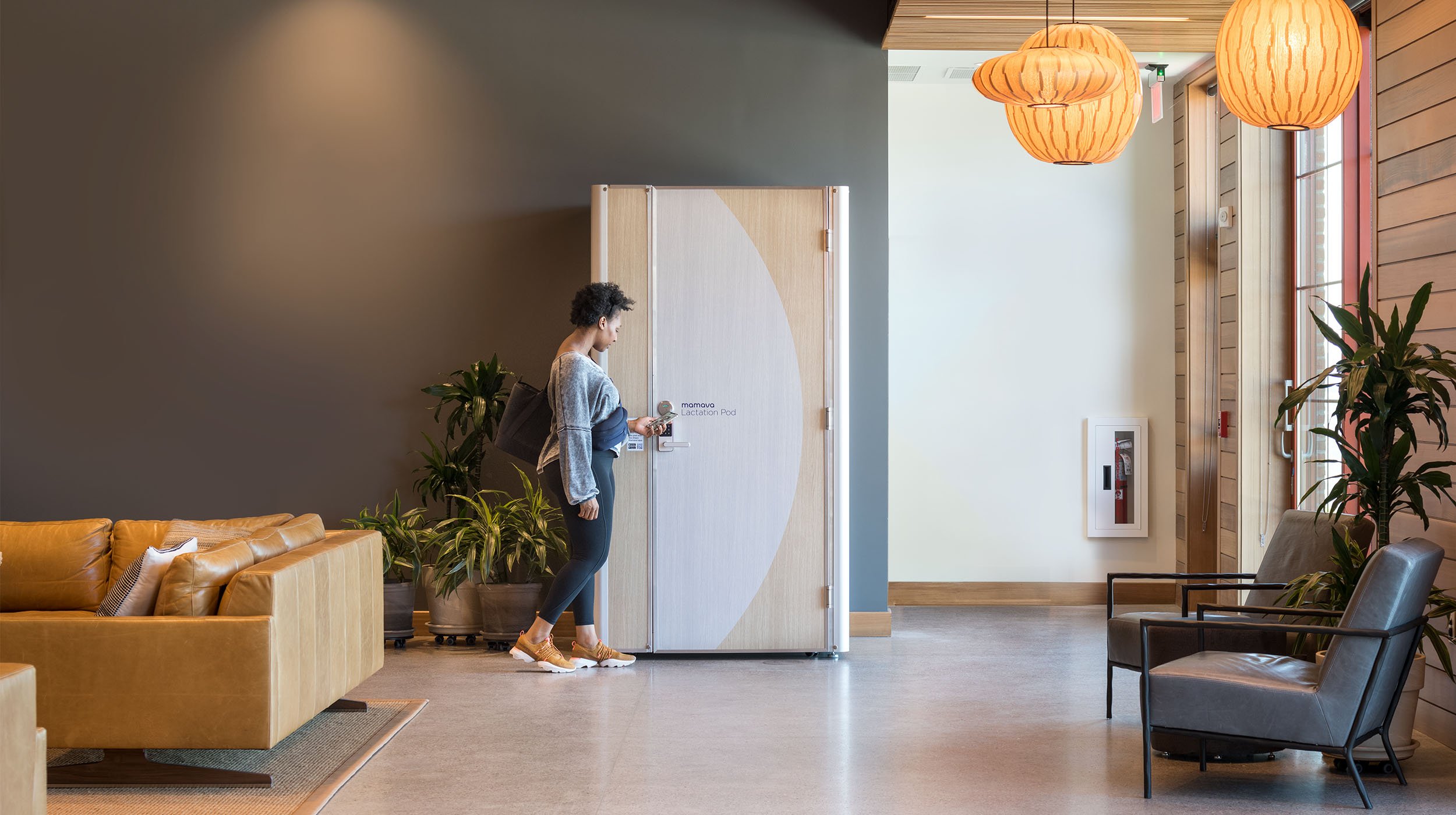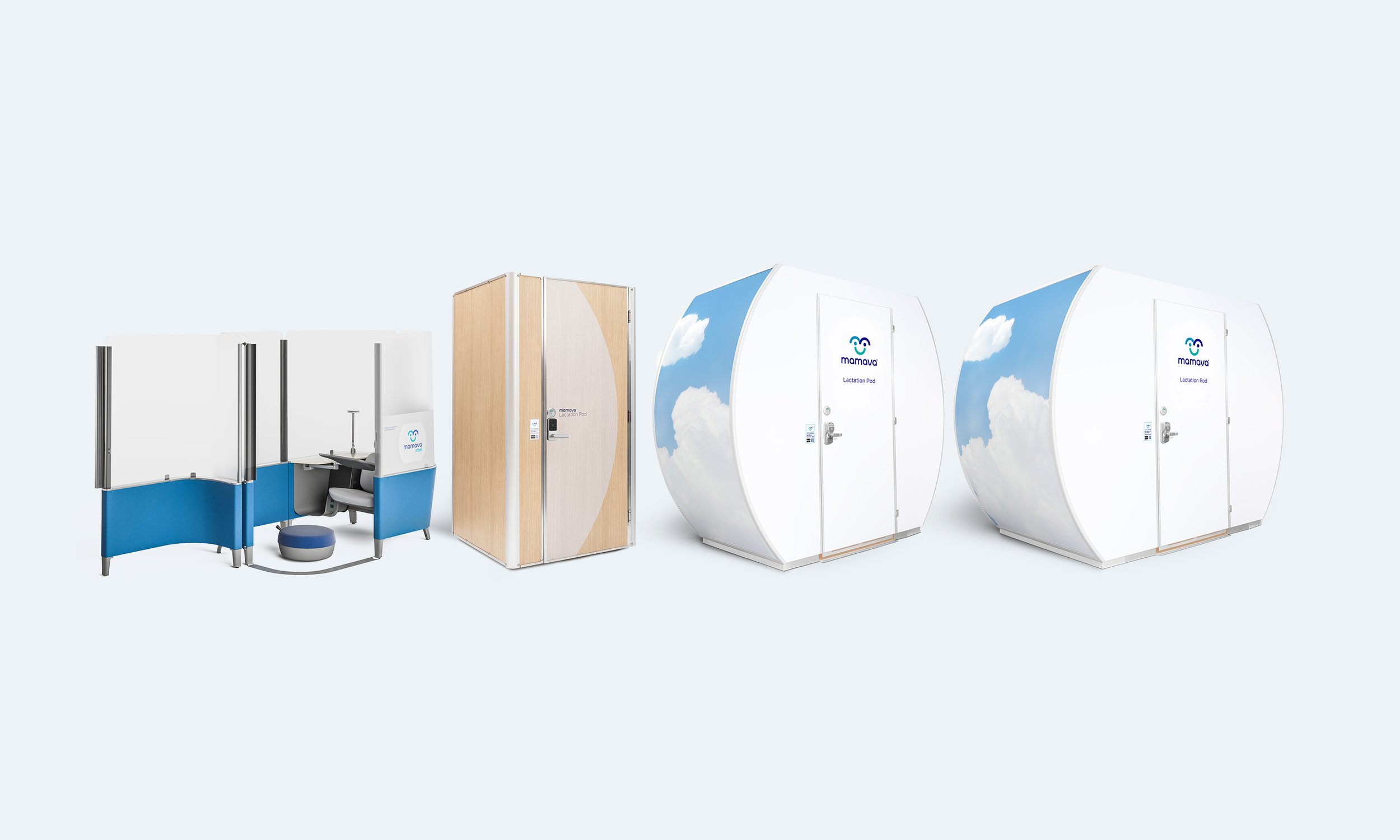WoW Woman in FemTech I Sascha Mayer, CEO and co-founder of Mamava
Sascha Mayer is the CEO and co-founder of Mamava - the creator of freestanding lactation pods for breastfeeding on the go—and a recognized expert on lactation space design, family-friendly workplace policies, and social entrepreneurial leadership. Through Mamava and its partners, Sascha has helped thousands of employers and organizations around the world implement lactation accommodations and support for new parents. She passionately supports—and enjoys speaking about—female-founded start-ups, intentional design, fem tech, product development and design, brand strategy, corporate social responsibility, and equity. Sascha lives in Vermont with her family and chickens.
Mamava, the leading expert in lactation space design, is transforming the culture of breastfeeding in the United States by providing flexible lactation space solutions designed to meet the needs of breastfeeding families. Mamava pods are linked into a proprietary smart technology system that empowers easy wayfinding and autonomous access. Moms can open them with Mamava’s free app (available for iOS and Android), check the occupancy status, opt into vacancy alerts, and leave digital notes of support for the next person. Best of all, the app helps breastfeeding parents find more than 6,000 (Mamava-vetted) places to pump on the go—not just Mamava pods, and never a bathroom.
Sascha, tell us a bit about your background and your projects so far.
I spent two decades in the design industry and saw firsthand the impact that smart design can make on people, places, and culture. At the time, I was also a breastfeeding mom—who traveled for work—and spent a lot of time pumping in bathrooms or storage closets because spaces weren’t designed to accommodate breastfeeding. The design studio where I worked, however, was in the business of solving problems through design. So, with the support of the design studio, my co-founder and I invented a freestanding lactation suite that would provide a clean and private space for pumping parents, and be easy to install (and move) for facilities. To solve the problem of controlled access, we developed the free Mamava app to help parents find pods (as well as thousands of other crowd-sourced lactation spaces!) and open them with the touch of a button. The app has evolved to include occupancy status, vacancy alerts, and digital words of support that parents can leave one another.
How did you get into this industry? Has it been an easy industry to get into or have you had many challenges?
I’m a committed problem solver and doer by nature, so those traits have served me well as I’ve navigated being an entrepreneur. We really didn’t enter a specific industry per se because the category of portable lactation spaces didn’t exist. So we created the category, as well as the product. The fact that we didn’t easily fit into an existing industry gave us the freedom and space to explore and experiment. As a result, we’ve been able to attend to user feedback (both from parents and buyers) to develop a product line that’s suited to a wide range of needs, spaces, and industries.
One of the biggest challenges early on was having the necessary conversation around breastfeeding at work. Frankly, talking about breasts and breastfeeding has, until recently, been taboo in workplaces. We wanted to normalize breastfeeding, but also normalize talking about the infrastructure and support that breastfeeding parents need. Our goal was to bring this issue out into the light where we could solve it, and make sure the next generation of parents had better options than bathrooms or storage closets.
How long did it take you to be where you are now? What was the biggest obstacle?
I’ve been working on this idea for a product that would help working parents breastfeed—no matter their industry or job—since I was a breastfeeding parent myself 16 years ago. The biggest obstacle was educating employers and facility folks (many of whom are men) about the facts and physiology of breastfeeding. We encountered a huge gap in cultural knowledge. Because, while almost every single person was a proponent of breastfeeding in theory, most didn’t understand what it took to continue to breastfeed once a new parent returned to work or had to travel without their baby.
What are your biggest achievements to date?
I have two amazing teenagers and have built a business that has impacted real change by providing infrastructure and support for breastfeeding.
What are the projects you are currently working on?
We’re launching our most flexible lactation pod yet. It was a challenge to redesign the pod to make it even more comfortable for parents while making it more mobile for buyers. The result is a sophisticated back-of-house space that will surprise and delight parents. It will help more workspaces provide dedicated lactation spaces because it makes a big impact with a small footprint.
We’re also developing an employer program for enterprise businesses that want to offer a comprehensive lactation program—from accommodations to clinical support for breastfeeding and everything in between—through our mobile app.


Is the #WomenInTech movement important to you and if yes, why?
Absolutely! In the same way that so much of the physical, analog world was designed and built largely by (and for) white men, digital technologies are at risk of perpetuating and reinforcing these same biases, assumptions, and preferences. It’s crucial that women and other marginalized groups bring a more holistic and inclusive approach to shaping the tools and technologies that are, increasingly, shaping our lives. From development to research to data, women in tech are broadening the scope of what’s possible.
What will be the key trends in your industry in the next five years and where do you see them heading?
The post-pandemic trend of prioritizing employee health and well-being is so important—and one we hope isn’t merely a trend, but rather a radical reprioritization for employers and companies everywhere. AI will be a key feature for delivering wellness benefits in this area. Our mission is to make sure that all breastfeeding parents have access to the resources and spaces they need. So the more we can help employers rethink their employee benefits and work spaces, the more we can make a positive difference in the lives of so many working families.
What is the most important piece of advice you could give to anyone who wants to start a career in this industry?
Build your network, and focus on progress over perfection.
Who are three inspirational women in your respective industry you admire?
Ida Tin, Founder of Clue
Kimberly Seals Allers, Founder of Irth
Kate Torgersen, Founder of Milk Stork
ind out more about Mamava on their website.
Follow Mamava on Instagram, Twitter, and LinkedIn.
Connect with Sascha on LinkedIn.
This interview was conducted by Marija Butkovic, Digital Marketing and PR strategist, founder, and CEO of Women of Wearables. She regularly writes and speaks on topics of wearable tech, fashion tech, IoT, entrepreneurship, and diversity. Follow Marija on Twitter @MarijaButkovic and read her stories for Forbes here.


